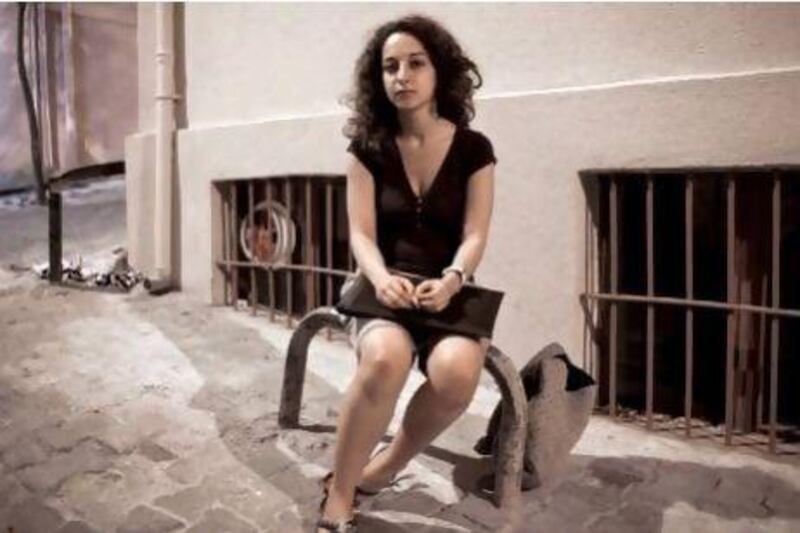ISTANBUL // Loubna Mrie is one of the few who belong to the minority Alawite sect of Syria's president, Bashar Al Assad, and oppose his rule.
The 21-year-old activist, from a village near Latakia, said the country's conflict has torn her family apart. She fled to Turkey in August after hearing security forces knew about her role in smuggling bullets to the opposition Free Syrian Army (FSA). En route, she was recorded talking to an FSA rebel in a video that was uploaded to YouTube. Within days, her mother was kidnapped from her home and has not been heard from since.
Ms Mrie blames her father, Jaodat Kamel Mrie, for the abduction.
“He is ready to do anything to show his loyalty to the government and Bashar Assad,” she said in an interview last week.
At the beginning of the uprising, her father, 69, a wealthy businessman, became a member of the dreaded shabiha, armed Alawite groups accused of acting as government sponsored militiamen.
Ms Mrie said he felt his financial success was due to privileges granted by the regime. He began arming unemployed Alawi men, paying them to carry out attacks, and training them.
“I am sure he is responsible for what happened to my mother,” she said.
Her decision to work against the regime came from a fierce independence her mother had instilled in her, she said. Her parents had divorced when she was in fifth grade and growing up she only saw her father a few times a week. Because so many people in Latakia, where she attended university, were pro-regime, she left for Damascus and begin assisting the FSA.
Sectarian slayings between Syria’s Sunni majority and the Alawite minority have dominated Syria’s 18-month-old conflict. Sunnis have largely backed the uprising against Mr Al Assad’s rule, while the Alawites _ members of an offshoot of Shia Islam that make up about 12 per cent of Syria’s 22.5 million population - have firmly stood behind the regime.
Ms Mrie’s decision to fight against the regime is unusual among Alawites.
Two Alawite men living in the Latakia region said that members of their sect wanted the regime to reform more than might be expected. Yet, Alawites fear the Sunni-dominated opposition to such an extent that now they are unlikely to budge in their support of the regime.
Sectarian tensions were higher than they had ever been, confirmed the two Alawi men. They opposed the regime, but could not be active against it, not just because of the security forces, but mostly because of other Alawites, they said.
“No, I don’t feel safe, I’m afraid of my neighbour, my relatives, my old friends,” said Jameel, who did not want to use his real name.
The Alawites did not only fear the “Islamist colour” of the revolution,” said Hasan, also a pseudonym. “They fear revenge because they see that Sunni [see] them as guilty.” And they think that in the long term they will be neglected and marginalised without the Assad regime.”
Opposition members have long accused the regime of creating a sectarian war as a way to avoid making true reforms and retaining power.
“The regime made the big problem by making a real civil war, and making people hate each other,” said Jameel.
Had the regime not succeeded in fomenting a civil war, there was a chance that the Alawites might also have demanded reforms, said Hasan.
“Most [Alawite] are pro-regime. I think that there might be not more than five per cent of them against it. But I must say that almost all [Alawites] see that the regime is bad and corrupted and so on, but [now] they see that what is going to be the alternative is worse.”
With violence now the central paradigm, observers believe there is little to expect in Syria except for a period of civil war and bloodletting, both sectarian and simply based on a desire for revenge.
“But that’s our fate and I think that Syria is ready for that in order to get rid of this catastrophic regime,” said Hasan.
Having escaped Syria to work with other activists in Turkey, Loubna’s stony composure breaks down to tears upon seeing freshly washed sheets. The sheets triggered memories of her mother who would obsessively clean every day, Loubna said.
“I always say to my friends that when the regime falls I will hold a gun and shoot all the people in my neighbourhood because they are making up these stories that my Mum and I are terrorists,” she said.
"They will not get away with it."
foreign.desk@thenational.ae





